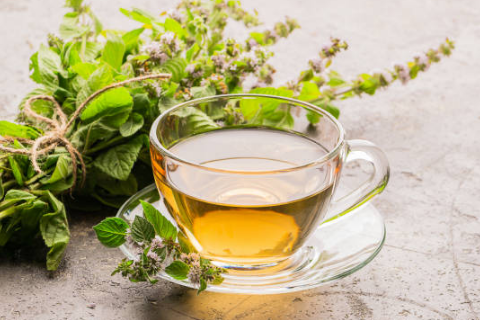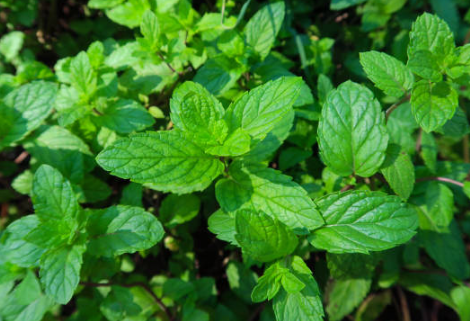Peppermint tea isn’t just a refreshing bedtime drink that freshens your breath. It offers a wide range of health benefits that go far beyond its cooling flavor. Here’s why you might want to make it a regular part of your wellness routine.
What You Should Know About Peppermint
Peppermint, formally known as Mentha piperita, is a natural hybrid of spearmint and watermint. Its signature cool, minty flavor comes from menthol, but the leaves also contain other essential oils like menthone and limonene.
Though most people associate peppermint with fresh breath, this ancient herb has a long history of medicinal use. It dates back to ancient Egypt—fun fact: dried peppermint leaves were found in the tombs inside the pyramids—where it was used for everything from easing headaches to aiding digestion. Some even consider peppermint one of the most versatile herbs in the world, alongside lavender.

Peppermint tea is made by steeping fresh or dried peppermint leaves in hot water. During steeping, the essential oils are released from the leaves, making each sip packed with soothing benefits.
Health Benefits of Peppermint Tea
While most existing studies focus specifically on peppermint oil—which is more concentrated than tea—there’s still plenty of anecdotal and expert-backed evidence suggesting peppermint tea offers real health perks.
1. Supports Digestion
Digestive support is one of peppermint tea’s most well-known (and well-loved) benefits. Peppermint appears to relax the digestive system and encourage smoother digestion overall. It may also help calm an upset stomach, reduce nausea, and ease post-meal bloating.
2. Relieves Headaches
Peppermint has both muscle relaxant and pain-relieving properties, which can help ease headaches and migraines. Peppermint oil has been shown to relieve tension headaches, muscle tightness, cold symptoms, and coughing. Peppermint leaves contain menthol and are rich in nutrients like magnesium, potassium, and vitamins A and C.
3. May Improve Sleep
Because peppermint has natural muscle-relaxing effects, it might help reduce tension before bedtime and improve sleep quality. While more research is needed, simply sipping a warm, caffeine-free tea like peppermint can help lower stress and ease you into sleep.
4. Fights Free Radicals
Peppermint has strong antioxidant properties that help fight free radicals—unstable molecules that contribute to aging, disease, and chronic conditions. While it’s not as antioxidant-rich as black or green tea, peppermint tea ranks among the highest in antioxidant activity when compared to other herbal teas.
5. Helps You Breathe Easier
If you’re feeling sick or congested, drinking (or even inhaling the steam from) peppermint tea might help. Peppermint leaves naturally contain menthol, which can open up the sinuses and help clear nasal passages. It may also ease nausea and settle your stomach.

6. Gives Your Skin a Glow
Peppermint’s anti-inflammatory, antibacterial, and cooling properties make it helpful for calming redness and soothing acne-prone skin. While drinking the tea alone may not dramatically change your skin, applying cooled peppermint tea bags directly to your face—or spritzing it with a spray bottle—can offer a refreshing boost. (Just be careful to avoid your eyes.)
How to Make Homemade Peppermint Tea
While there are plenty of store-bought peppermint teas available, making your own is super easy and guarantees a fresh brew. Here’s how:
-
Pick a small handful of peppermint leaves (about 20) from your garden or local grocery store. Lightly crush or bruise the leaves and set them aside.
-
Pour 2 cups of filtered water into a teapot or saucepan and bring to a boil.
-
Lower the heat, add the peppermint leaves, and let them steep for 10 to 15 minutes.
-
Strain the mixture using a tea strainer (or pour it straight into your mug if you don’t mind floating leaves), then enjoy in your favorite tea cup.

